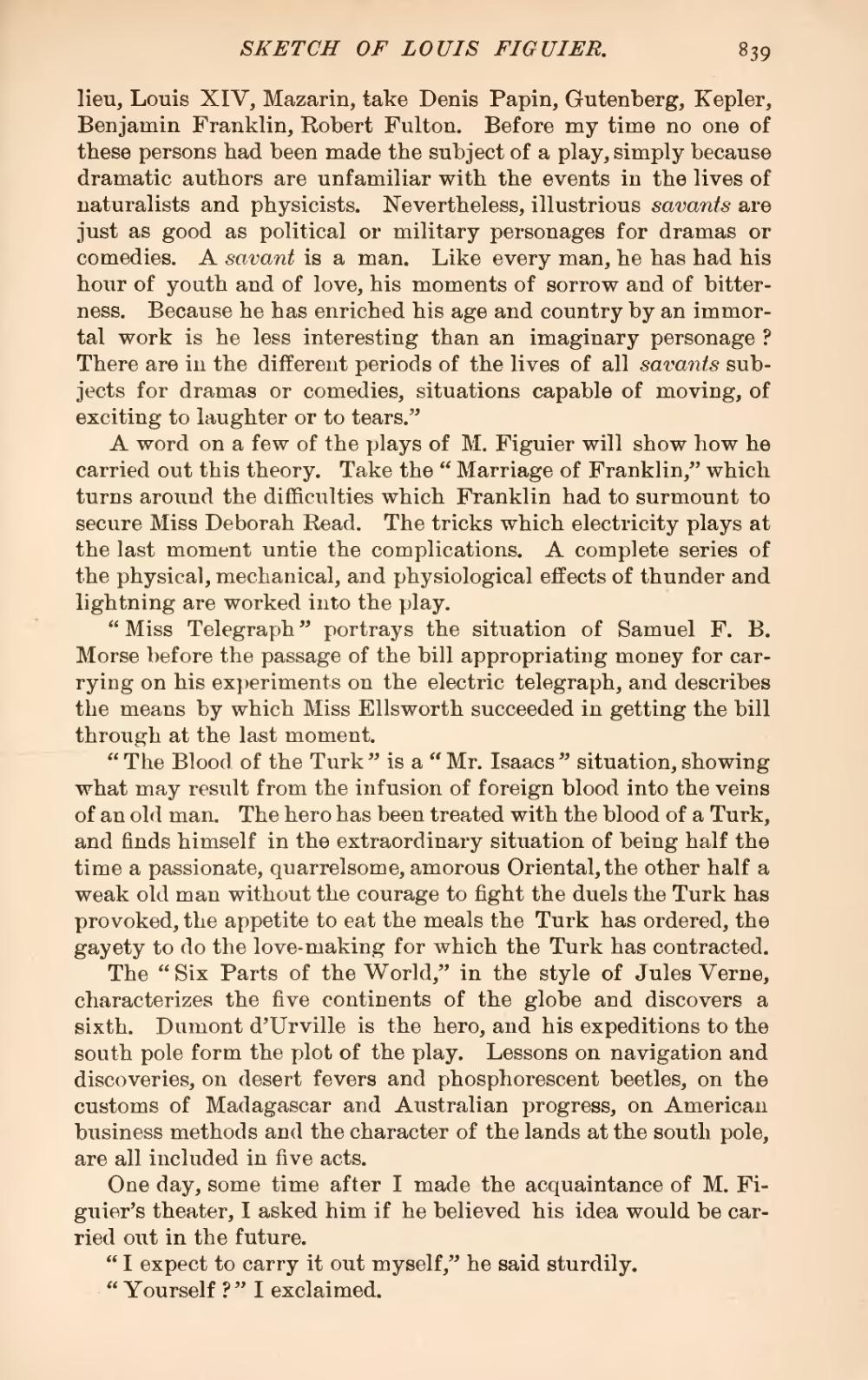lieu, Louis XIV, Mazarin, take Denis Papin, Gutenberg, Kepler, Benjamin Franklin, Robert Fulton. Before my time no one of these persons had been made the subject of a play, simply because dramatic authors are unfamiliar with the events in the lives of naturalists and physicists. Nevertheless, illustrious savants are just as good as political or military personages for dramas or comedies. A savant is a man. Like every man, he has had his hour of youth and of love, his moments of sorrow and of bitterness. Because he has enriched his age and country by an immortal work is he less interesting than an imaginary personage? There are in the different periods of the lives of all savants subjects for dramas or comedies, situations capable of moving, of exciting to laughter or to tears."
A word on a few of the plays of M. Figuier will show how he carried out this theory. Take the "Marriage of Franklin," which turns around the difficulties which Franklin had to surmount to secure Miss Deborah Read. The tricks which electricity plays at the last moment untie the complications. A complete series of the physical, mechanical, and physiological effects of thunder and lightning are worked into the play.
"Miss Telegraph" portrays the situation of Samuel F. B. Morse before the passage of the bill appropriating money for carrying on his experiments on the electric telegraph, and describes the means by which Miss Ellsworth succeeded in getting the bill through at the last moment.
"The Blood of the Turk" is a "Mr. Isaacs" situation, showing what may result from the infusion of foreign blood into the veins of an old man. The hero has been treated with the blood of a Turk, and finds himself in the extraordinary situation of being half the time a passionate, quarrelsome, amorous Oriental, the other half a weak old man without the courage to fight the duels the Turk has provoked, the appetite to eat the meals the Turk has ordered, the gayety to do the love-making for which the Turk has contracted.
The "Six Parts of the World," in the style of Jules Verne, characterizes the five continents of the globe and discovers a sixth. Dumont d'Urville is the hero, and his expeditions to the south pole form the plot of the play. Lessons on navigation and discoveries, on desert fevers and phosphorescent beetles, on the customs of Madagascar and Australian progress, on American business methods and the character of the lands at the south pole, are all included in five acts.
One day, some time after I made the acquaintance of M. Figuier's theater, I asked him if he believed his idea would be carried out in the future.
"I expect to carry it out myself," he said sturdily.
"Yourself?" I exclaimed.
